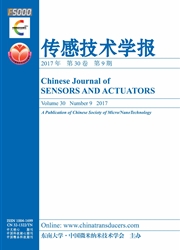

 中文摘要:
中文摘要:
在无线传感器网络中,获取传感器节点的位置信息对于许多相关的应用十分重要。首先分析了现有的无线传感器网络定位算法,然后提出了一种结合功率控制的区域定位算法(ALPC),该算法将传感器节点的位置估计在一个小区域中,而不是寻找它的精确坐标,由sink节点完成复杂的计算,传感器节点无需进行大量的通信和计算,节省了能量并延长了网络的寿命;根据实测数据讨论了时空域对信号传播模型的影响,以及这种影响如何改变定位粒度;利用区域命名机制减小了网络流量负载提高了网络的可靠性;最后,通过仿真验证了算法的有效性。
 英文摘要:
英文摘要:
The locations of sensors in wireless sensor networks is very important for many related applications. The existing wireless sensor network localization algorithms have been analyzed. An Area Localization with Power Control (ALPC) algorithm is presented. This algorithm estimates the position of a sensor node within a certain area rather than finds the exact coordinates. The complicated calculations are done by the powerful sinks, and the sensor nodes do not have to make a lot of communications and calculations themselves, which help to save energy and then extend the life time of the network. The effects of temporal and spatial on signal model, as well as how does this affect change the localization granularity according to the measured data, are discussed. Area Naming scheme is used to reduce network traffic loads and enhance the reliability of network. At last, the the simulation result of algorithm is shown and analyzed.
 同期刊论文项目
同期刊论文项目
 同项目期刊论文
同项目期刊论文
 期刊信息
期刊信息
